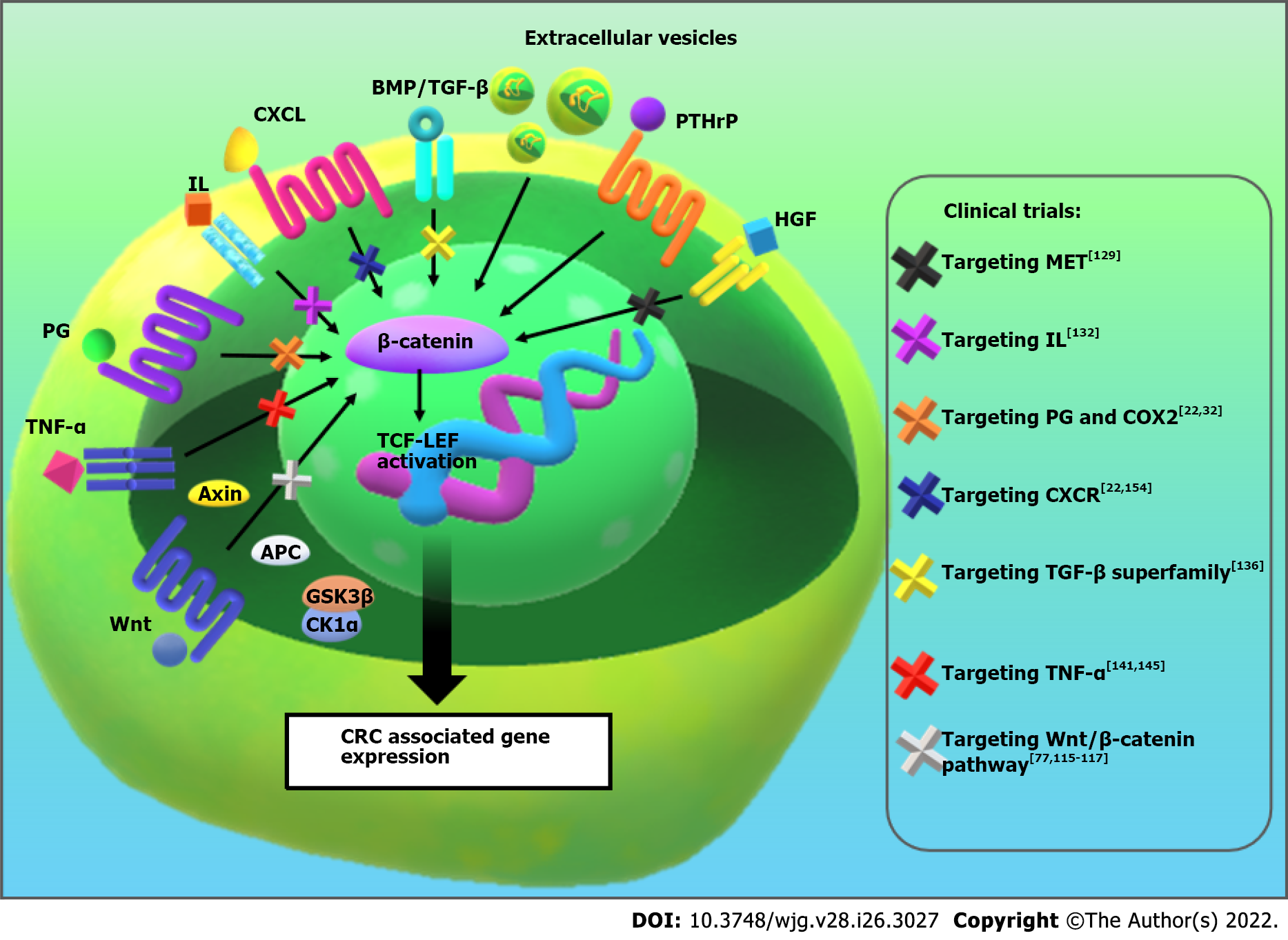Copyright
©The Author(s) 2022.
World J Gastroenterol. Jul 14, 2022; 28(26): 3027-3046
Published online Jul 14, 2022. doi: 10.3748/wjg.v28.i26.3027
Published online Jul 14, 2022. doi: 10.3748/wjg.v28.i26.3027
Figure 4 Pharmacological targeting of the tumor microenvironment factors involved in the activation of β-catenin signaling in colorectal cancer.
Several therapeutic strategies to block or inhibit the induction of the β-catenin pathway by tumor microenvironment factors in colorectal cancer (CRC) are currently under clinical study. This figure is original for this work. APC: Adenomatous polyposis coli; BMP: Bone morphogenic protein; CK1α: Casein kinase 1 alpha; CXCL: C-X-C motif chemokine ligand; GSK3β: Glycogen Synthase Kinase 3 Beta; HGF: Hepatocyte growth factor; IL: Interleukin; PTHrP: Parathyroid Hormone-related Peptide; PG: prostaglandin; TCF/LEF: T-cell factor/lymphoid enhancer factor; TGF-β: Transforming growth factor-beta; TNF-α: Tumor necrosis factor-α; Wnt: Wingless protein.
- Citation: Novoa Díaz MB, Martín MJ, Gentili C. Tumor microenvironment involvement in colorectal cancer progression via Wnt/β-catenin pathway: Providing understanding of the complex mechanisms of chemoresistance. World J Gastroenterol 2022; 28(26): 3027-3046
- URL: https://www.wjgnet.com/1007-9327/full/v28/i26/3027.htm
- DOI: https://dx.doi.org/10.3748/wjg.v28.i26.3027









